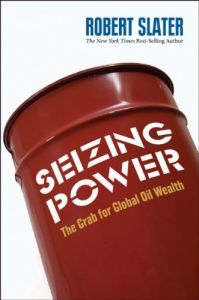Join getAbstract to access the summary!

Join getAbstract to access the summary!
Robert Slater
Seizing Power
The Grab for Global Oil Wealth (Bloomberg)
Bloomberg Press, 2010
What's inside?
Always politically slippery, the oil business enters a new phase in the global power struggle over energy.
Recommendation
Journalist Robert Slater’s book provides an interesting piece of the oil puzzle by identifying today’s new industry bosses, including new state-run oil companies and the “petroaggressors” – or nonaligned nations – that dislike the US and now have the oil, power and money to change the world’s political balance. Slater presents the history of the oil industry, explains some technical factors, and describes the rotation of new and old participants. Though the book does not offer a great deal of original information, Slater believes that dealing with rogue oil nations is a necessary – but menacing – evil that stems from the West’s overreliance on oil to solve its energy problems. getAbstract recommends this overview of the increasingly nasty politics of oil. Here’s hoping forewarned is still forearmed.
Summary
About the Author
Robert Slater is a journalist who has written best-selling books about George Soros and Jack Welch.






















Comment on this summary